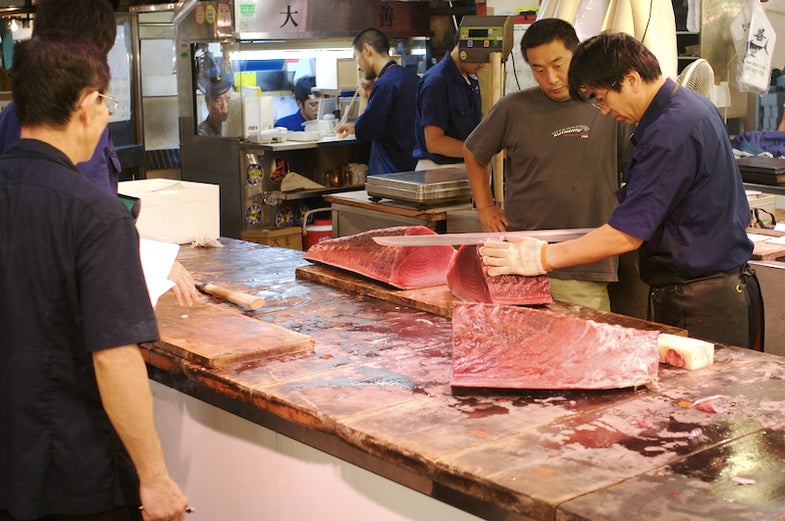Sweeping Report Details the Devastation of Atlantic Bluefin Tuna
Environmental groups and wildlife conservation advocates have argued for years that Atlantic bluefin tuna populations are being devastated, but it...

Environmental groups and wildlife conservation advocates have argued for years that Atlantic bluefin tuna populations are being devastated, but it was difficult to make a hard case. Why? The very people and authorities that should’ve been keeping track of fishing quotas and enforcing international regulations simply – and sometimes willfully – did not, leading to ongoing overfishing and keeping black markets stocked with product that is very difficult to trace back to the source. Now a group of investigative journalists have compiled their own detailed and damning report, as well as a companion documentary, tallying the damage done.
The report, compiled by the International Consortium of Investigative Journalists (ICIJ), details the abuses carried out in the harvesting of Atlantic bluefin tuna, a marine delicacy that can grow to more than 1,000 pounds and live for up to 40 years – and fetch up to $100,000 per specimen at auction in Tokyo (Japan makes up 80 percent of the bluefin market). The report reveals an intricate web of interests ranging from government agencies down to fishermen and fish markets all willfully ignoring the rules for the sake of profit.
To quote directly from the report:
The questionable practices extend across the industry, ICIJ found, from fishing fleets and farms, through ministry offices, to distributors in Japan. Led by the French, Spanish, and Italians, joined by Turks and others, Mediterranean fishermen violated official quotas at will and engaged in an array of illegal practices: misreporting catch size, hiring banned spotter planes, catching undersized fish, and plundering tuna from North African waters where EU inspectors are refused entry. An illicit market even arose in trading quotas — when regulators finally started enforcing the rules — in which one vessel sells its nation’s quota to a foreign vessel that had overfished.
These illicit practices, the report claims, extend to sea ranching, in which fish are kept in a series of underwater cages and nets, fattened up like cattle, and sold off at auction. Because ranching fish creates a problem for fisherman looking to appear under quota, they quickly figured out how to use the ranches to “launder fish,” falsifying fish counts and the weights of their catches. Barring that, a robust black market arose in loosely regulated places like Turkey and Tunisia, who would take un-counted, illegal fish off ranchers’ hands.
The documentary filmmaker, Television for the Environment, is affiliated – albeit loosely – with wildlife groups like the WWF and the UN’s Environment Program, so there are lingering questions of objectivity regarding the doc. But the report is worth perusing if for no other reason than to remind us of the relevance of that Socratic adage (paraphrased here): “who will police the police?”
Check out a teaser for the documentary below.
[ICIJ via New York Times]